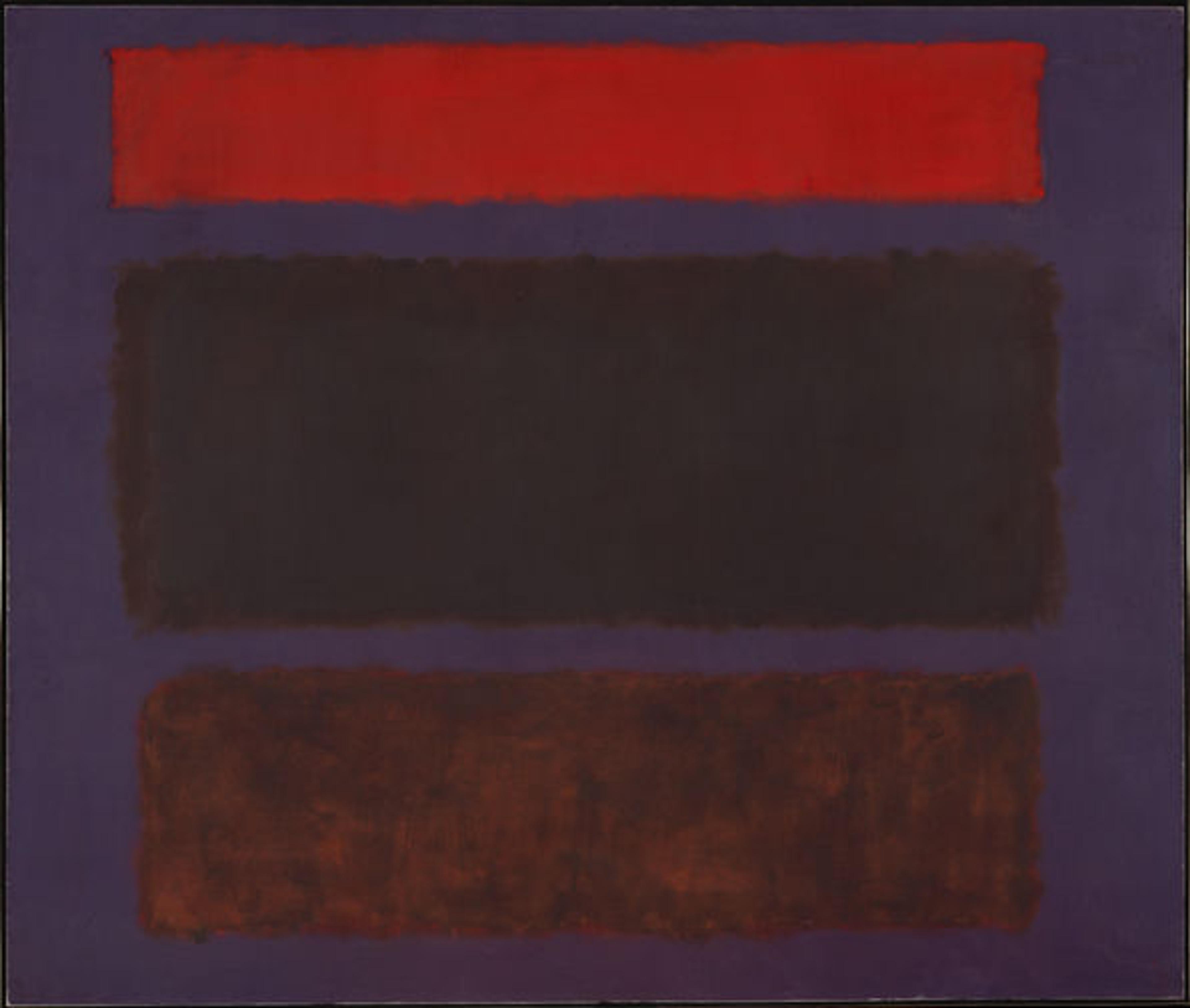
Mark Rothko (American [b. Russia], 1903–1970). No. 16, 1960. Oil on canvas; 102 x 119 1/2 in. (259.1 x 303.5 cm). The Metropolitan Museum of Art, New York, Arthur Hoppock Hearn Fund, George A. Hearn Fund and Hugo Kastor Fund, 1971 (1971.14) © 2011 Artists Rights Society (ARS), New York
«"A painting is not a picture of an experience; it is an experience." –Mark Rothko»[1]
Okay, so first let's discuss why the quotation from Mark Rothko above is a perfectly valid point. For amateur artists—and amateur critics—one of the most prevalent and somehow most gratifying compliments one can receive on an artwork is "It looks so real!" But why care about how real it looks? We have the corporeal world for realism; why do we always need a realistic representation of something we already have in actual, physical life?
Representational painting has had a long and rich tradition that continues to today. Realism requires great technical skill, but I suppose virtually anyone can develop technical skill if he or she devotes enough hours and toil to the process of learning. So Rothko makes a good point above: if you're making something, create an experience in and of itself rather than a representation of something that people already know. Because of representational art's rich history, we've been trained to connect to and have an emotional response to realistic works. We may have lived the experiences depicted in representational art—we've seen light patterns on water, tasted pollen, etcetera—so we're entering into the viewing process with already-complete memories that just need to be stirred by visual evocation.
When Rothko said, "I paint big to be intimate," he was correct. There is an intimacy to Rothko's work, a weird pull that is entirely opposed to the confusing and disorienting feeling that nonrepresentational art commonly invites. So I guess an emotional reaction can sneak up on you even when you’re viewing something you don't recognize. I suppose we're now being retaught how to approach art—how to view it and what it elicits from us—so maybe Rothko wasn't very far off when he said that a painting is an experience. Perhaps even now a new experience of art is being created.
Footnote
[1] Dorothy Seiberling, "The Varied Art of Four Pioneers," LIFE, November 16, 1959, 82.